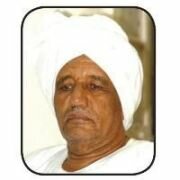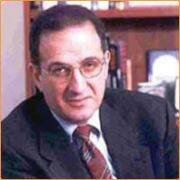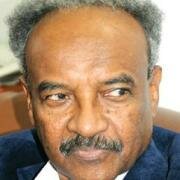Some media reports have caused confusion on the case of the internal legal disputes within the Sudanese Church of Christ
. Here is a brief on what actually happened, and what efforts the authorities took to resolve it?
It is a matter of fact that regular religious services and prayers in Sudanese churches are practiced freely and safely. If there are some isolated cases of dispute on lands or property, the underlying reality that the level of religious tolerance in Sudan is high does not change.
Some media reports have caused confusion on the case of the internal legal disputes within the Sudanese Church of Christ. The confusing reports and the news reports that led credence are worsening the dispute, and the situation can be better understood when the comments of Archbishop of Canterbury, Justin Welby, upon the conclusion of his historical visit to Sudan in August 2017 are reflected upon.
The Archbishop said Western reports on violations of religious freedoms in Sudan are "confused" and depend on specific cases that do not represent the normal situation in the country. Welby further said that Sudan has a clear religious freedom policy, saying "the Sudanese government clearly has a policy of religious freedom." Thanks a lot for these beautiful and fair words, dear Archbishop.
Also an American journalist and media expert Dr. Uchenna Ekwo who visited Sudan in May 2017 said in his article Chrislam - the Face of Ecumenism in Arab World, “Sudan can best be described as a country that takes pride in Muslim-Christian relations with exemplary interfaith engagement.”
What really happened regarding the internal conflict inside the Sudanese Church of Christ, and what efforts did authorities take to solve it?
The dispute between two groups in the Church started in 2014 due to the canceling of the North Sudan sector and changes to the structure of the church and the number of sectors. This was completely internal, and the group that refused was their choice. Then in November 2015, an urgent General Assembly elected some of them. In November 2016, the Sudanese Council of Churches froze the membership of the Sudanese Church of Christ according to the law of the council due to a division and the failure of mediation between the two parties.
In January 2017, there was a call for a General Assembly and new leadership appeared that the authorities adopted according to law and regulation but the split is still there. Other groups insisted to do prayers in another shift, which the legal administration of the Church refused, reopening the case.
The Sudanese government is responsible for protecting safety and security. If the authorities allowed the dispute to turn to violence, then the situation would get even worse. The authorities in Sudan and the Christians and their bodies are doing excellent work to settle this dispute, and the best course of action is to allow the legal procedures go on with justice taking its regular course.
* Media and Information Attache - Sudan Embassy in Washington D.C.
-
Periscope: Charting a New Path for Water’s Future (2-2)
-
Legal Viewpoint: Duties of the Board of DirectorsNext >



